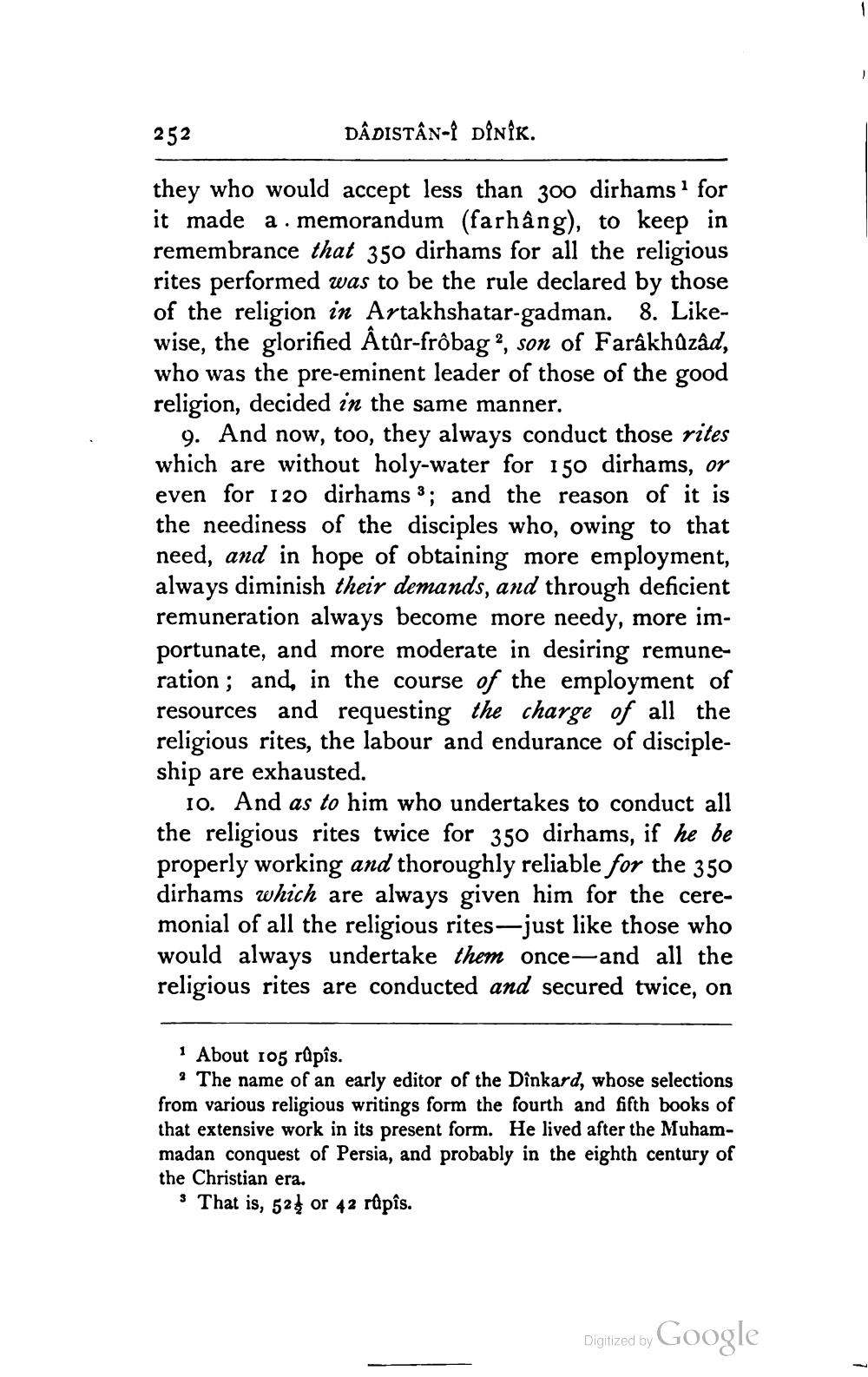________________
252
DÂDISTÂN-I DÎNÍK.
they who would accept less than 300 dirhams for it made a. memorandum (farhâng), to keep in remembrance that 350 dirhams for all the religious rites performed was to be the rule declared by those of the religion in Artakhshatar-gadman. 8. Likewise, the glorified Atûr-frôbag ?, son of Faråkhůzâd, who was the pre-eminent leader of those of the good religion, decided in the same manner.
9. And now, too, they always conduct those rites which are without holy-water for 150 dirhams, or even for 120 dirhams 3; and the reason of it is the neediness of the disciples who, owing to that need, and in hope of obtaining more employment, always diminish their demands, and through deficient remuneration always become more needy, more importunate, and more moderate in desiring remuneration; and, in the course of the employment of resources and requesting the charge of all the religious rites, the labour and endurance of discipleship are exhausted.
10. And as to him who undertakes to conduct all the religious rites twice for 350 dirhams, if he be properly working and thoroughly reliable for the 350 dirhams which are always given him for the ceremonial of all the religious rites—just like those who would always undertake them once-and all the religious rites are conducted and secured twice, on
1 About 105 rûpîs.
The name of an early editor of the Dinkard, whose selections from various religious writings form the fourth and fifth books of that extensive work in its present form. He lived after the Muhammadan conquest of Persia, and probably in the eighth century of the Christian era.
s That is, 52} or 42 rûpîs.
Digitized by Google




